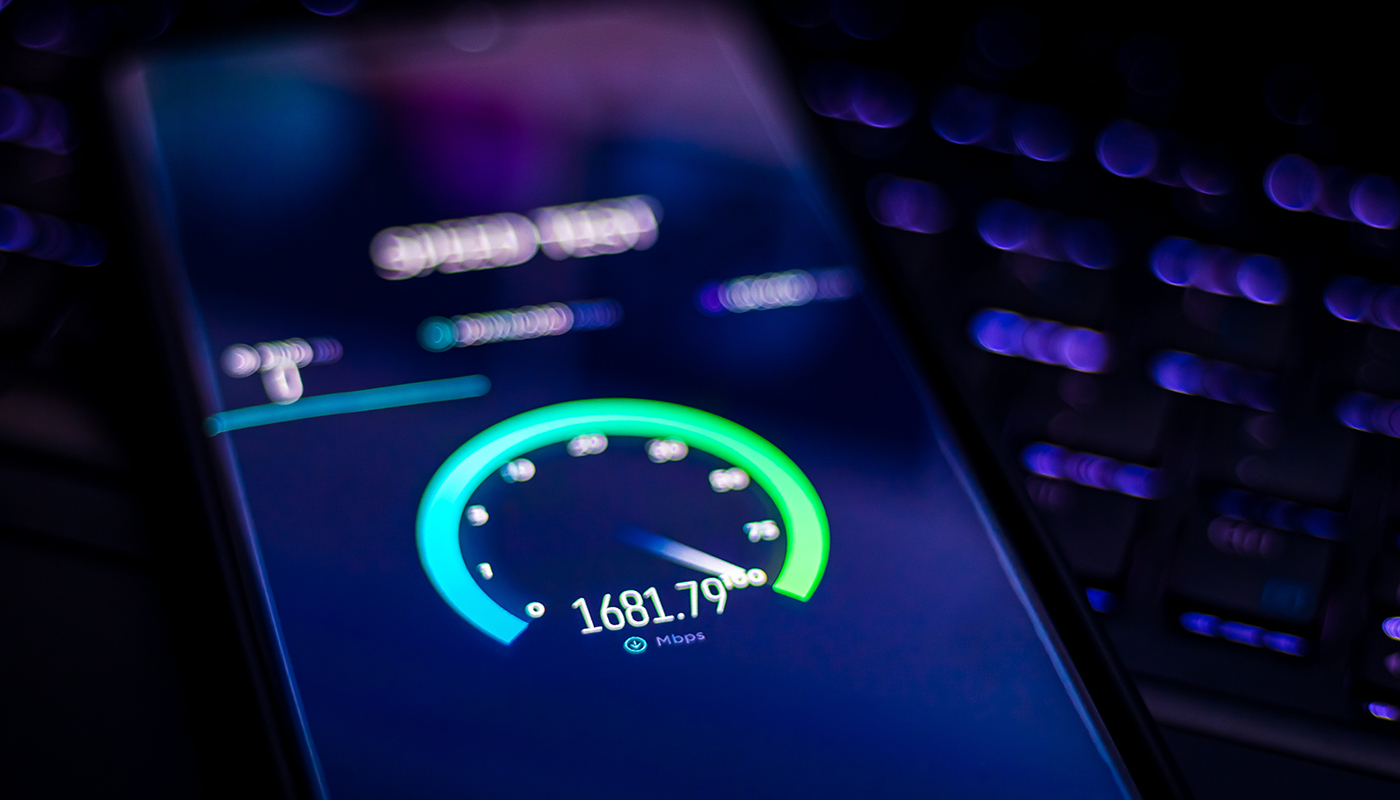When looking at internet speeds or data storage, the terms ‘gigabit’ and ‘gigabyte’ often appear. However, these two measurements are not the same. Understanding the difference is essential to ensure you get the most from your broadband connection and data storage solutions. This guide will break down the key differences between gigabits (Gb) and gigabytes (GB), how they impact internet speeds and data storage, and how to convert between them.
What is a Gigabit?
A gigabit (Gb) is a unit of data that consists of one billion bits. In digital terms, a bit is the smallest piece of data, represented as either a 0 or 1 in binary code. The term ‘gigabit’ is most commonly used when discussing network speeds and broadband connections.
Internet providers often advertise speeds in gigabits per second (Gbps). For example, a 1 gigabit per second (1 Gbps) connection means data transfers at a rate of one billion bits per second. This measurement is crucial when considering internet speed, as a higher Gbps rating typically means faster downloads and smoother streaming experiences.
What is a Gigabyte?
A gigabyte (GB) is a unit of data storage equal to one billion bytes. Since one byte consists of eight bits, a gigabyte is significantly larger than a gigabit. This distinction is essential when considering storage devices like hard drives, USB sticks, and cloud storage.
When dealing with file sizes, a movie download might be listed as 2 GB, meaning it contains approximately two billion bytes of data. In contrast, when discussing internet speeds, a provider may offer a 1 Gbps connection, which means it can transfer one billion bits per second – not bytes.
Gigabit vs Gigabyte: Understanding the Difference
The fundamental difference between a gigabit and a gigabyte is the size:
- 1 gigabit (Gb) = 1,000,000,000 bits
- 1 gigabyte (GB) = 8,000,000,000 bits
Since there are 8 bits in a byte, a gigabyte is 8 times larger than a gigabit. This means that if you have a 1 Gbps internet connection, the actual data transfer speed in gigabytes per second would be 1 Gbps = 0.125 GB per second.
How Many Gigabytes in a Gigabit?
To convert gigabits to gigabytes, divide by 8:
- 1 gigabit (Gb) = 0.125 gigabytes (GB)
- 8 gigabits (Gb) = 1 gigabyte (GB)
For example, if you’re downloading a file that is 1 gigabyte in size using a 1 Gbps connection, the download would take approximately 8 seconds in an ideal scenario.
How Does This Affect Internet Speeds?
Understanding the difference between gigabit and gigabyte is essential when assessing broadband speeds. Internet providers typically advertise speeds in gigabits per second (Gbps), but many people think in terms of gigabytes. This can lead to confusion.
For instance, if your broadband provider offers 1 Gbps internet speed, your actual data transfer rate is 125 megabytes per second (MBps), since 1 gigabit = 125 MB. This means:
- A 500 MB file would take approximately 4 seconds to download on a 1 Gbps connection.
- A 2 GB movie would take around 16 seconds to download.
How Gigabits and Gigabytes Apply to Everyday Use
Gigabit in Internet Speeds
- Broadband and fibre optic internet speeds are measured in megabits per second (Mbps) or gigabits per second (Gbps).
- A 1 Gbps connection can support ultra-fast downloads, 4K video streaming, and seamless online gaming.
- Businesses often require higher Gbps connections for cloud computing, video conferencing, and data transfers.
Gigabyte in Data Storage
- Hard drives, USB flash drives, and cloud storage use gigabytes (GB) or terabytes (TB).
- A 500 GB hard drive can store approximately 125,000 songs or 250 movies.
- Most smartphones come with 64 GB to 512 GB of internal storage.
Gigabit to Gigabyte Conversion Chart
| Gigabit (Gb) | Gigabyte (GB) |
| 1 Gb | 0.125 GB |
| 2 Gb | 0.25 GB |
| 4 Gb | 0.5 GB |
| 8 Gb | 1 GB |
| 16 Gb | 2 GB |
| 32 Gb | 4 GB |
Conclusion: Why Gigabit vs Gigabyte Matters
Understanding gigabit vs gigabyte is crucial when selecting an internet package or purchasing storage devices. If you see an internet speed of 1 Gbps, remember that it means 125 MB per second, not 1 gigabyte per second. Likewise, when choosing a storage device, keep in mind that 1 GB is significantly larger than 1 Gb.
Whether you’re streaming ultra-HD content, downloading large files, or investing in cloud storage, knowing the difference between gigabits and gigabytes helps you make informed decisions. If you need high-speed internet for business or home use, understanding how data speeds and storage sizes work will ensure you get the best performance for your needs.
